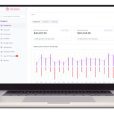Reports of tech layoffs ruled the roost in 2022. Some companies struggled with labour shortages following the pandemic, while others struggled with retaining the right employees. This followed the resurgence of the ever-dreaded news: robots are taking over human jobs. That’s not quite accurate given that the majority of businesses still rely on human labour.
That makes it essential for human resource departments to show up and do the tedious work. They must source new staff and somehow convince themselves that they are making the right decisions and embrace technology that can reduce hiring risks that ultimately lead to more tedious work.
Artificial intelligence (AI) is changing how many businesses operate with manual labour and decision making being taken out of the hands of humans. Think robots working in factories or trading algorithms being responsible for about 80% of trades on the U.S. share market as of 2018. In a similar vein, AI is transforming HR.
Think about how much work it takes to hire a new employee. A business has to find, interview, vet and screen them, and still runs the risk of not hiring the right person. Or, turns out, that person is unreliable and you need to start the whole process again after investing further time training them. It’s an exhaustive process amid the current fluid labour market where younger professionals are freely moving between jobs within the current war on talent.
What if artificial intelligence could eliminate—if not substantially reduce—that risk and save the business a massive expense in terms of both time and money?
That’s where conversational AI comes in. It pre-screens employees without requiring a HR manager to step in. As the name suggests, this AI chats with people. Imagine if AI ran interviews (say 100 in a day) and assessed how effective each candidate was using predictive analysis (kind of like filtering through potential Tinder matches based on their bio and a quick chat).
The AI would consider not only the answers but also the tone, clarity, confidence and more. Then, it would transcribe all the interviews—using dynamic text-to-speech functionalities, passing on only the best ten candidates. That would save so much time for the hiring manager, who would typically comb through hundreds of applications and conduct interviews otherwise.
The trustee AI HR sidekick could also make things simpler for the interviewees who would otherwise feel nervous sitting across a real human for their interview. Some people may feel more comfortable talking to a conversational AI avatar rather than a real person, especially for a role that does not require high levels of communication (perhaps warehouse workers or labourers).
The numbers spell success for such AI. By 2030, the conversational AI market is set to be valued at $95.2 billion, growing at a CAGR of 30.2% between 2019 and 2024.
Clearly, this sounds like a good deal, and Aussie artificial intelligence company Unith (ASX: UNT) has this technology available and is quickly building traction in tech circles. Unith’s Talking Head platform generates digital humans that can converse with humans in real time, and respond accordingly to their questions and answers. With emotional intelligence, the platform boasts a human touch that chatbots lack.
Deploying machine learning, natural language processing and AI to produce three-dimensional virtual humans, Unith’s Talking Head platform features more than 600 voices in over 60 languages with the platform already licenced by a Big Five Tech company (Google, Facebook, Amazon, Apple or Microsoft).
Given those aforementioned tech giants are all in arms races against each other, it comes as no surprise that they don’t want their competitors to know they have engaged Unith’s digital humans but now that the platform has caught the fancy of Silicon Valley, is the rest of the world next?
- Ovanti’s iSentric signs contracts worth $14.4m with Malaysian commercial bank - June 27, 2024
- Baby Bunting fights back from retail downturn with 5-year strategy, includes Gen-Z focus and self-funded growth - June 27, 2024
- CLEO meets with US FDA to develop strategy for ovarian cancer test launch - June 26, 2024













Leave a Comment
You must be logged in to post a comment.